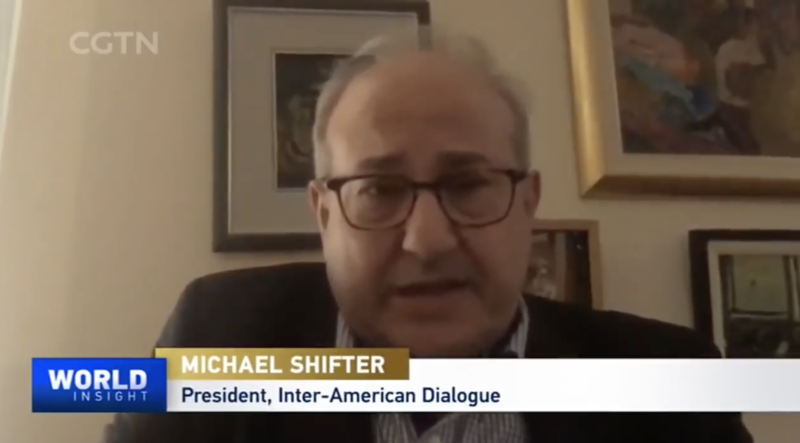Can Spain Solve the Cuba Problem?
By all accounts, Spain wants to bring change to the European Union’s Cuba policy. In so doing, it is tackling a foreign policy challenge that often sheds more heat than light.
Michael Shifter, president of the Inter-American Dialogue, participated as a panelist on CGTN’s World Insight program. The discussion focused on the results of Venezuela’s National Assembly elections and their implications for the country’s political future. The conversation also explored potential negotiation scenarios between the opposition and Maduro government while analyzing the future of US foreign policy toward Venezuela in the incoming Biden administration.
“It is clear that the major part of the opposition boycotted this election and decided that there weren’t conditions to make it a free and fair election. […] The vast majority [of the opposition] decided that it was simply not acceptable to have such a skewed playing field and of course, there was no international observation by the EU or the OAS and the like. So, naturally the result would be that the government would do very well and have most of those 277 seats.”
“The President-elect, Biden, who will assume office January 20th has said that Nicolás Maduro is a dictator of Venezuela and I think he will also have a hard line, not necessarily defined by Venezuela politics, but defined by the interests and the values of the United States.”
“From all the accounts that we have from credible organizations like the UN and others, there is a profound problem with democracy and human rights in Venezuela.”
“I think ultimately more stability means having a political agreement among the government and the opposition. That is the only way this profound crisis will be resolved and that requires the [Maduro] government to be willing to negotiate in good faith and seriously.”
“I think the incoming Biden administration would be committed to that process if the [Maduro] government really prepared to give some concessions so we can get an agreement and on the basis of that agreement, hopefully move towards elections that actually are free and fair.”
“The U.S. would play a constructive role but I don’t think it is the US only. […] Let’s get all the players around the table, this is not a US imposed solution, this is a global issue.”
[...]
By all accounts, Spain wants to bring change to the European Union’s Cuba policy. In so doing, it is tackling a foreign policy challenge that often sheds more heat than light.
When Haiti was struck by a devastating earthquake, the administration of U.S. President Barack Obama quickly absorbed the depth of the tragedy and necessity of a robust U.S. response. Unless the U.S. adopts a proactive role, Haiti’s fragmented political landscape threatens to deteriorate into a political vacuum that will compound the current crisis.
Politics is swirling everywhere. Such are the ways of democracies, especially when oppositions come alive and defeat or threaten incumbents.
 CGTN / World Insight
CGTN / World Insight